AAPI Stories: How an Adoptee’s Search for His Birth Mom Fueled His Advocacy for Equality
Dan Moen and Joe Hunter reflect on how they’ve grown together over the past 11 years and the ups and downs Dan endured as an adoptee in search of his roots.
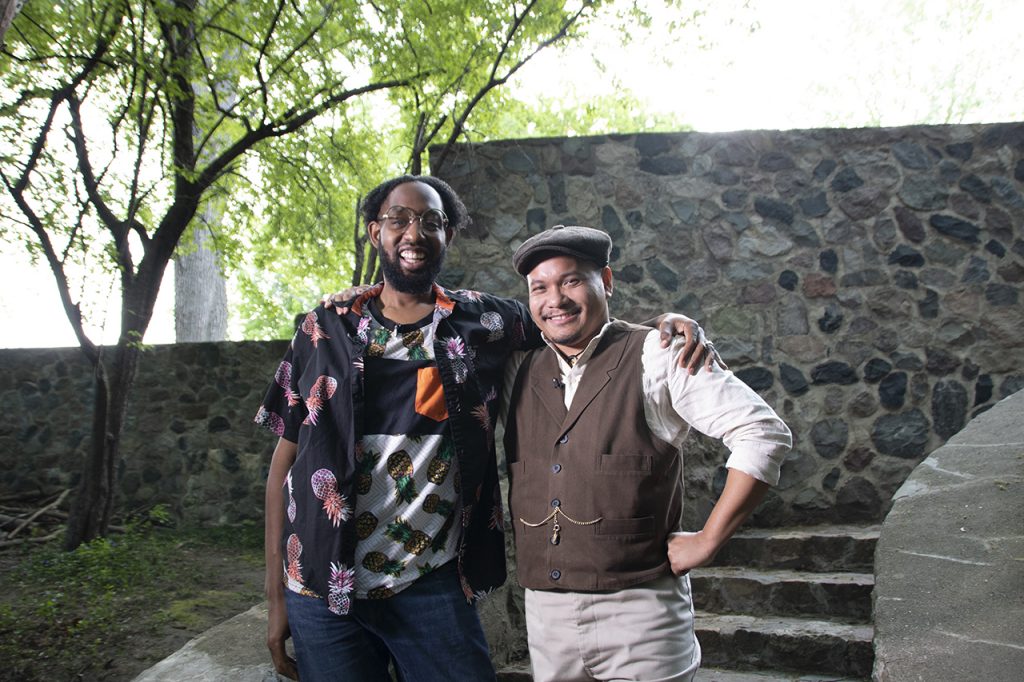
This month, WDET is amplifying the diverse stories of our local Asian American and Pacific Islander community, sharing the joys and struggles of being Asian American in Southeast Michigan. In collaboration with Detroit Public TV, we invited several community members to share their personal stories.
Check out DPTV’s features in this storytelling project at onedetroitpbs.org.
We want to hear your #AAPI story. Click here to find out how to share your experiences.
When Dan Moen and Joe Hunter first met at Macomb Community College where they were art students, it was not love at first sight. Dan was very irritated and put off by Joe’s overzealous love of Lady Gaga and Joe thought Dan was rude.
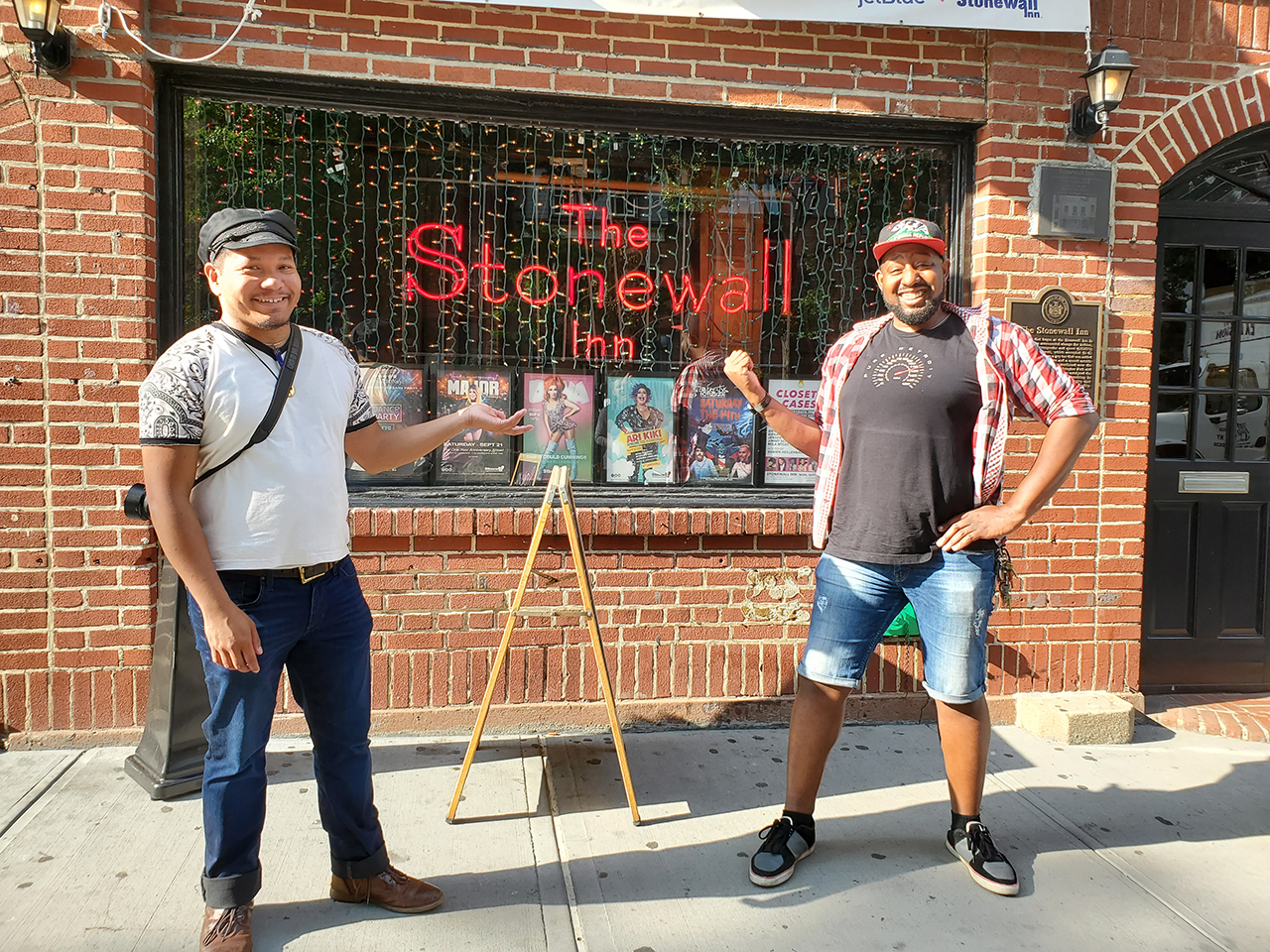
But over time they ended up falling for each other, with Joe’s dedication to the arts captivating Dan and Dan’s caring for others and leadership winning over Joe. Dan is the communications director of APIA Vote Michigan as well as a graphic designer, photographer and screenwriter. Joe is a minister of media at the Historic Little Rock Baptist Church in Detroit as well as a gamer and streamer.
The couple will celebrate their 11th anniversary in June, and over the past decade, they have been through many adventures and creative pursuits, such as Dan’s current project to produce a docu-drama about a fictional interracial family who run a bubble tea shop in Metro Detroit during the pandemic.
But one of the biggest moments of their relationship was Dan’s search for his birth mom. Dan, an adoptee from the Philippines, grew up in the Romeo area in a loving family with a close-knit group of friends. But something felt off for him. With Joe’s love and support, Dan kept looking for his biological family even when the search seemed futile.
The two recently talked about Dan’s search and what they’ve learned from each other.
Click the above player to hear their conversation and read below for excerpts, which have been edited for clarity and brevity.
Dan: I grew up in the Romeo/Washington area, and it is 90% white out there. And I just remember that feeling of needing to belong … something felt off. … Because of how I look, [people always asked] “Where are you from? You’re so exotic. Are you from the area? And I’m like, “I live at 29 Mile Road.” And the only other people of color I could relate to was my friends who were in the Mexican community or the other adoptees. And when it came to being a BIPOC person that was kind of something that has driven me, that feeling of culture and diversity.
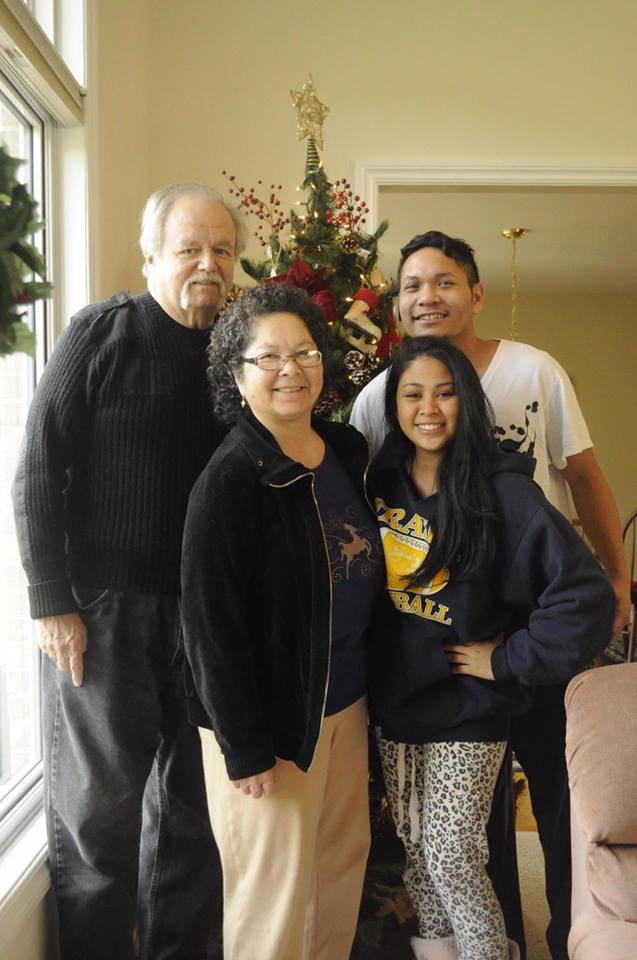
Joe: Who sparked that? Wasn’t there a certain friend that sparked [your interest in] learning about your Asian history?
Dan: There are actually two. One of them was Carol … She was proud of her Korean heritage, and she would make jokes all the time. And I was like, I feel like I belong now. And the other person I owe a lot to is … my seventh-grade [teacher]. She was showing a video about the Philippines because we were studying Asia at that time. And I remember she wrote down in the corner of my paper … a little note saying, “I did this one for you.” And I remember the feeling of, this teacher actually sees me, not just as like a number and as another student, but like someone who has a whole history. … That was where [my interest in my history] really started to take off … [during] middle school.
Joe: How much did you know about your Filipino history or background when you got over here?
Dan: When I was born, I was in an orphanage until about I was eight months old. Then I came over here to the United States. And both me and my sister are adoptees; we’re not biologically related. And we grew up in our household learning about our heritage and culture through what we call Filipino Day. Filipino Day was a little bit more specifically about her adoption, not so much about the culture per se of the Philippines, but more understanding about what it means to be an adoptee. Me and my sister are both Filipino, ethnically. But culturally, we were so far removed from our heritage, like everything that we learn, we have to learn on our own.
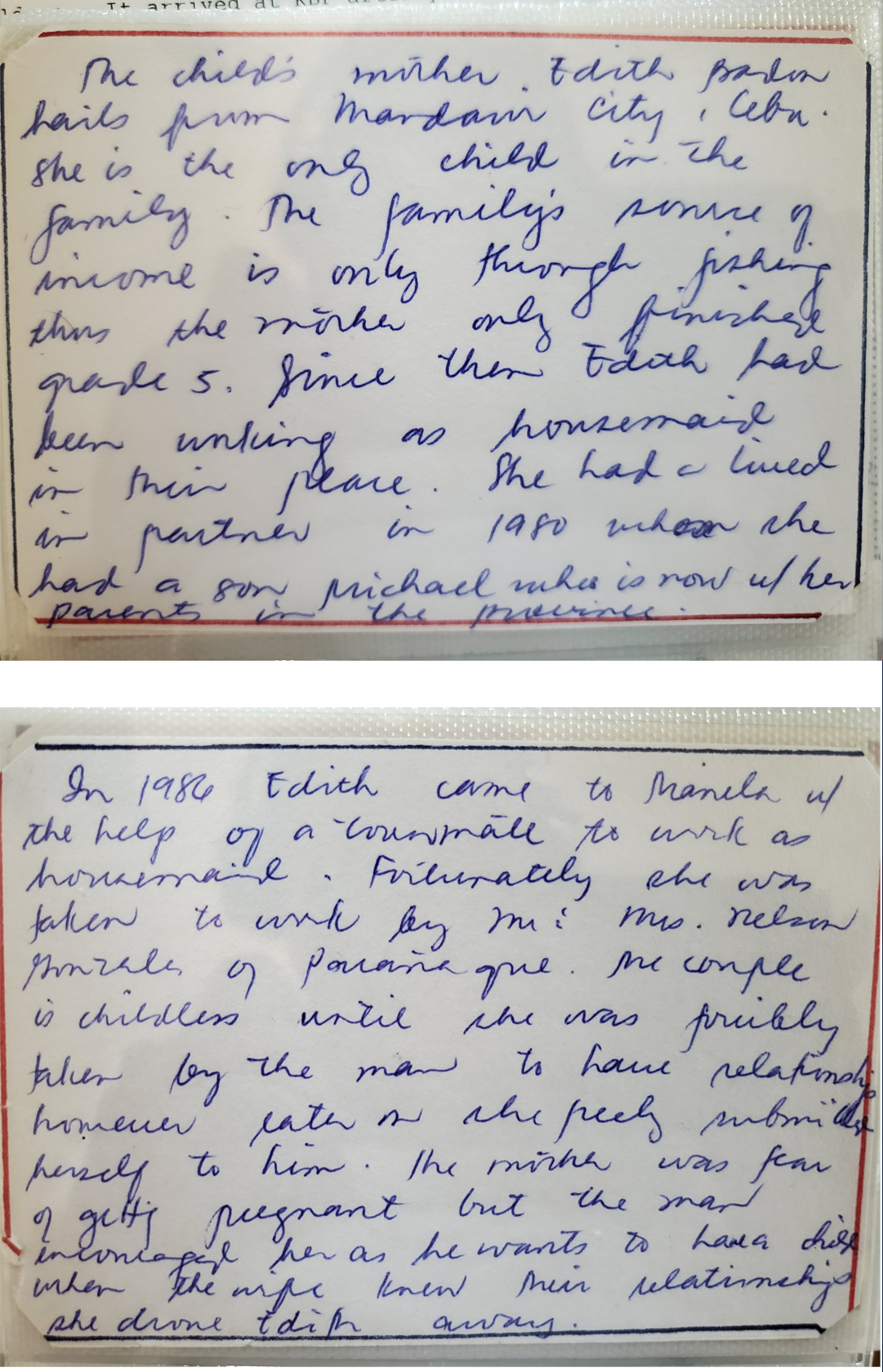
I don’t speak for all adoptees for adoptees who come from different cultures, but it’s like you go into one circle. And you’re not white. But then sometimes you go into your own community, and they’re like, “What kind of a Filipino are you? You don’t know this, and this and this.” I know; I wasn’t raised around Filipinos, I don’t speak this language. I don’t do these things. So it was very difficult.
Joe: During the course of our relationship [I’ve been] teaching you the language around all of those things. It has been quite the journey for us, just because me being a black man of color, I know about microaggressions … there have been many times where I’ve had to deal with it. And so I know that that’s a lot of our relationship, a lot of how we connected has been me seeing a situation and letting you know that what just happened to you was messed up, right?
Dan: It would go over my head all the time. I didn’t have the language to explain it. I didn’t know the wording of it. I remember in high school, I had a group of guys literally play off my Asian heritage as a joke. And it wasn’t until many, many years later that I realized I was basically like an entertainer to their amusement, and it was humiliating. In fact, I actually kind of buried that story most of my life until more recently where I talked about it. It’s sad because it’s like it’s a prolonged experience. And there’s that feeling of shame when you learn something a lot later in life, but at the same time, I don’t shy from it. It’s part of who I am, which is what fueled me to want to find my biological family.

Joe: How did that come about?
Dan: In high school, when you graduate, there’s what’s called the senior trips … And I wanted to go back to the Philippines. I wanted to know where I came from. So my dad and I flew over there. And we brought over all of our documents … in hopes of trying to find my biological family. Long story short, we hit a brick wall. … There were a lot of turning points when I was on that trip. Like one very significant point, there was where a young boy was chasing a car, not chasing it aggressively, but he was trying to sell candles. And that’s when I realized that could have been me. So that experience really fueled me for more to be like, I need to understand this part of me better. And I over the years rejected the whole [narrative of], “Why can you just love who you are? Why can’t you be this?” And again, not speaking for all adoptees, there’s always going to be that little emptiness and that orphaning.
From that experience, we didn’t find anybody. … And so years later, it was just kind of like, I’m not gonna find them. The anxiety was really bad.
Joe: I picked up on the trauma because by the time [we started dating] you had already been over there, came back and hit that brick wall.
‘A Pivotal Point’
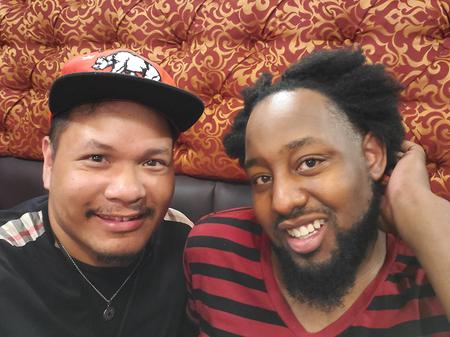
Dan: You came into my life at a pivotal point where the feelings were overwhelmingly emotional and very strong. And that orphaning really hit hard … where no matter how many friends you have, no matter how close your family is, there’s still something that’s very difficult to pin down, that belongingness feeling. So I remember throughout most of the beginning of the relationship, that was something that was very difficult to show to you was those document papers and explain all this because for a very long time, saying adopted adoptee almost felt like a stigma. And it almost always followed up with: “Do you know your real parents? Do you know your real mom, which for adoptees never say that. Because our real parents are the people who raised us. …
And I remember you saying, why don’t you go on Facebook? And I remember, [thinking] Sure, I’m gonna give that a try. It’s a total shot in the dark. But who knows.
Because of these papers, I had some clues. I knew what my birth name was … so I used that name and searched on Facebook, for everyone who matched the descriptions. I sent out this letter … “Hey, I’m Dan. I’m an adoptee I just want to learn about myself.”

I sent it out to so many people, and I didn’t hear anything. So then 2017 rolls around. And that’s when I did a follow-up… with every single person I contacted and one got back to me. And he is now my cousin. He said, “I’m going to totally forward you to my auntie who lives in Texas.” And Tita Joy is her name [tita means auntie]. So Tita Joy … [said] “This sounds familiar, I’m gonna ask around the family.” So she became a huge catalyst to helping me find more about myself. … And then long story short, she ends up sending me a message saying, “We found your birth mother.” … And we set up a meeting where we got to chat with her on Facebook video for the first time and then there was my dad and me. She was in Texas and my birth mother and her daughter-in-law were in the Philippines.
Joe: How was that meeting?
Dan: As soon as my birth mother came on to the video … all she kept saying was, “I’m sorry.” … And I kept telling her, “Don’t apologize. I just want to say thank you.” For almost 30 years of my life, all I wanted was to say thank you to this person. Because she gave me this chance. … And then it turns out, Tita Joy was planning a family reunion that year. … So I saved up the money and my dad and I flew out there in 2017. … And then I finally got to meet my birth mother. We drive up this dirt path to this rural part of the island. We go to this house. And it’s this little tiny village. And I remember having my phone, I was just telling my dad, I’m just like, “Please film this. Because this is a once in a lifetime.” … My dad’s filming me and you see me coming up there. And she just grabs me. And we just lose it. Like we just lose it. …
After the emotional feelings, we ended up sitting down and we had an entire interview. Tita Joy came with us, so she can translate. And she asked all the questions that I’ve been dying to know throughout my life. But the part that really hit me was my birth mother thought I died. … She said that when I was born, I was extremely sick. And she thought that as soon she gave me up for adoption, she was just like, he’s just gone. …. That whole entire experience was absolutely amazing. … Three months after we met my birth mother passed away.
Joe: How was that for you?
Dan: That was really emotionally overwhelming. I grew up not knowing who this woman was. But it was amazing how one vacation we got to reconnect an entire life story. And both my parents were so supportive of this, like a lot of people ask, “How did your family feel about this? How did your mom feel about this?” My mom was very supportive. My dad was very supportive. I mean, he was there [on the trip]. My sister was supportive, a lot of friends and family were very supportive of this experience. When [my birth mom] passed away, it was a really hard hit. And it was weird, because on one hand, I was mourning because she was battling cervical cancer; I kind of knew about that beforehand. But at the same time, it was just that feeling of I have to go back, I can’t say no to this, because if she’s battling cervical cancer, we don’t know when she’s going to pass away.
Joe: Wow, that is a pretty amazing story from start to finish. Do you have any plans to hunt down your father’s side?
Dan: I’m in the process of looking for my biological father as well. I have some of the paperwork as well asking around Filipinos on Facebook. But there’s a part of me that feels like I’m feeling relatively completed. Like if I find my birth father, that would be incredible. But if I don’t, it’s that feeling of kind of leave it up to God. But while I’m here, I became even more of an [advocate] for anti-racism, for LGBT rights, things like that, because this entire experience of that belongingness is what ended up fueling me to understand our communities alone. When you really think about our relationship, Stop Asian Hate and Black Lives Matter and LGBT, that’s our life right there. Yes, that is literal life.
Joe: It’s quite interesting, the stories are just tied so closely together. In our relationship, and these past 11 years, there have just been so many stories of different things that would happen. And, as you know, I am one to not back down from a challenge. So I tend to speak up and out about things when they come across my purview. And just, you know, having that vocabulary, teaching the vocabulary and seeing you take that and blossom and grow with that and now become an advocate, has just been an amazing feat.

Dan: I thank you for that. Throughout our relationship, I remember there was a lot of points where you and I just would not see eye to eye because I grew up with a lot of conservative beliefs. But over the years, I quickly became more and more progressive. … And 2020 is where it’s sad to say, but it feels like that was the first time in my entire life where I finally acknowledged the target on my back. Because I grew up with the cognitive dissonance feeling that I can just go to the suburbs, I don’t have to worry about these problems. But the reality is, is because I have friends and family and obviously you, I can’t do that I can’t just go back to the suburbs and forget about the world’s problems.
Joe: It’s just par for the course of being a person of color in the world. It shouldn’t have to be that way. And until we fight all the fights that need to be had to change it, it’s going to continue to be that way. But that’s why you do what you do. That’s why I do what I do. That’s why we go out, and we advocate for police reform … just to make sure that hopefully, my nephews, my sons, my daughters, my granddaughters, won’t have to fight this exact same fight.
‘You Opened Up Doors’
Joe: How would you be different if you hadn’t met me?
Dan: The biggest thing that I thank you for is you opened up doors that I thought I shut off years ago. [Because of you] I was able to confront my own biases, my own internal racism, my own internal struggles. … And I feel we both grew with each other at the same time. Like there were things I remember you learned from me and I learned from you and we were able to connect especially from our different communities from suburbia to city, from the Asian community, black community, adoptees and non-adoptees … there was a lot of overlap throughout the entire relationship. How would the world be if we never met from your perspective?
Joe: My life would have been so much more different. Being in this relationship you have allowed me to kind of stand outside myself and see how I come across to other people … Because of the lessons that you have brought into my life and shown me … growing up and growing with you has allowed me to mature to a point that I didn’t think that I would ever be able to get to. So I thank you for that. I love you.
Dan: Mahal kita (I love you in Tagalog).
Joe: Mahal kita.
Trusted, accurate, up-to-date
WDET is here to keep you informed on essential information, news and resources related to COVID-19.
This is a stressful, insecure time for many. So it’s more important than ever for you, our listeners and readers, who are able to donate to keep supporting WDET’s mission. Please make a gift today.
